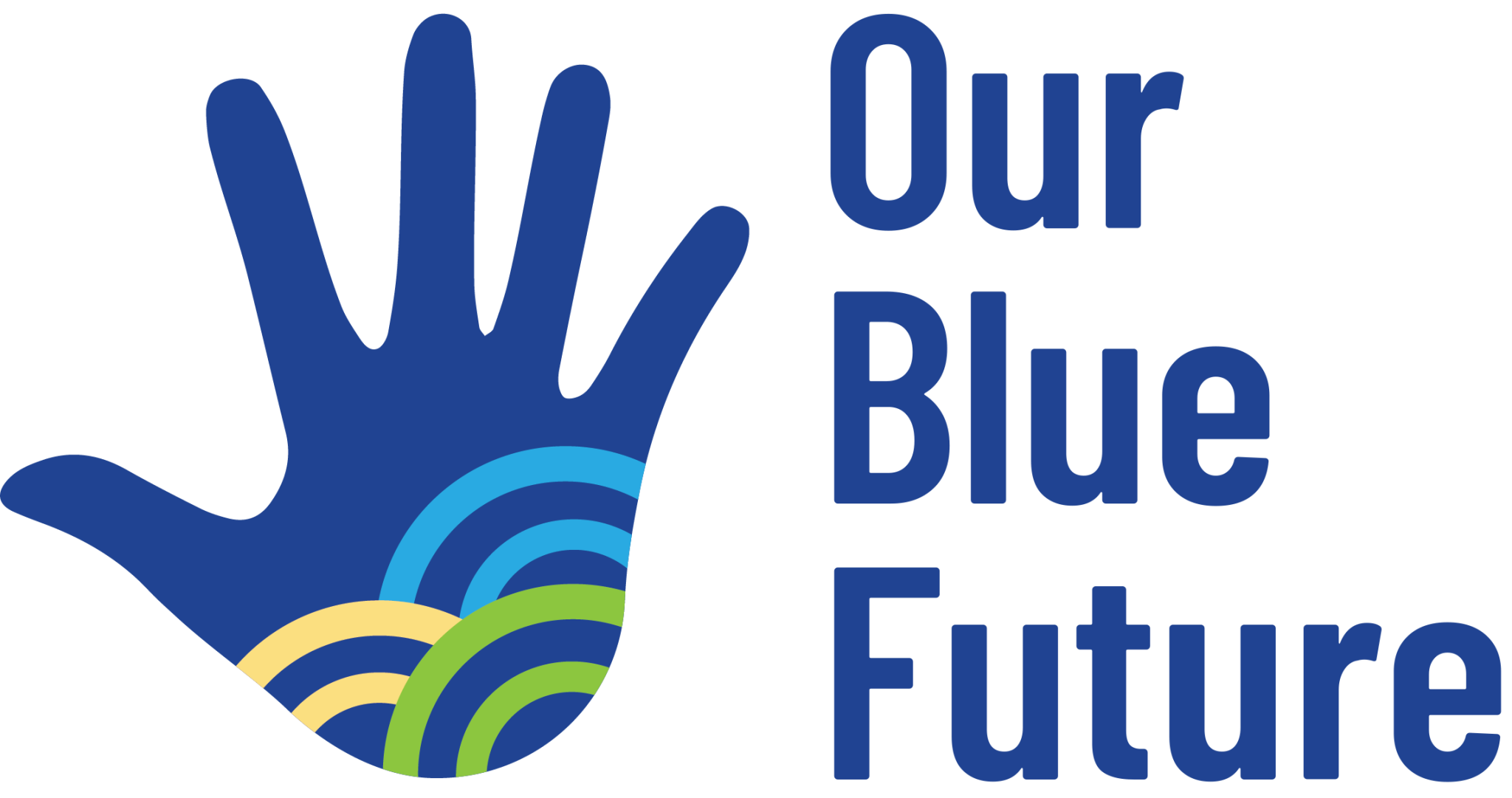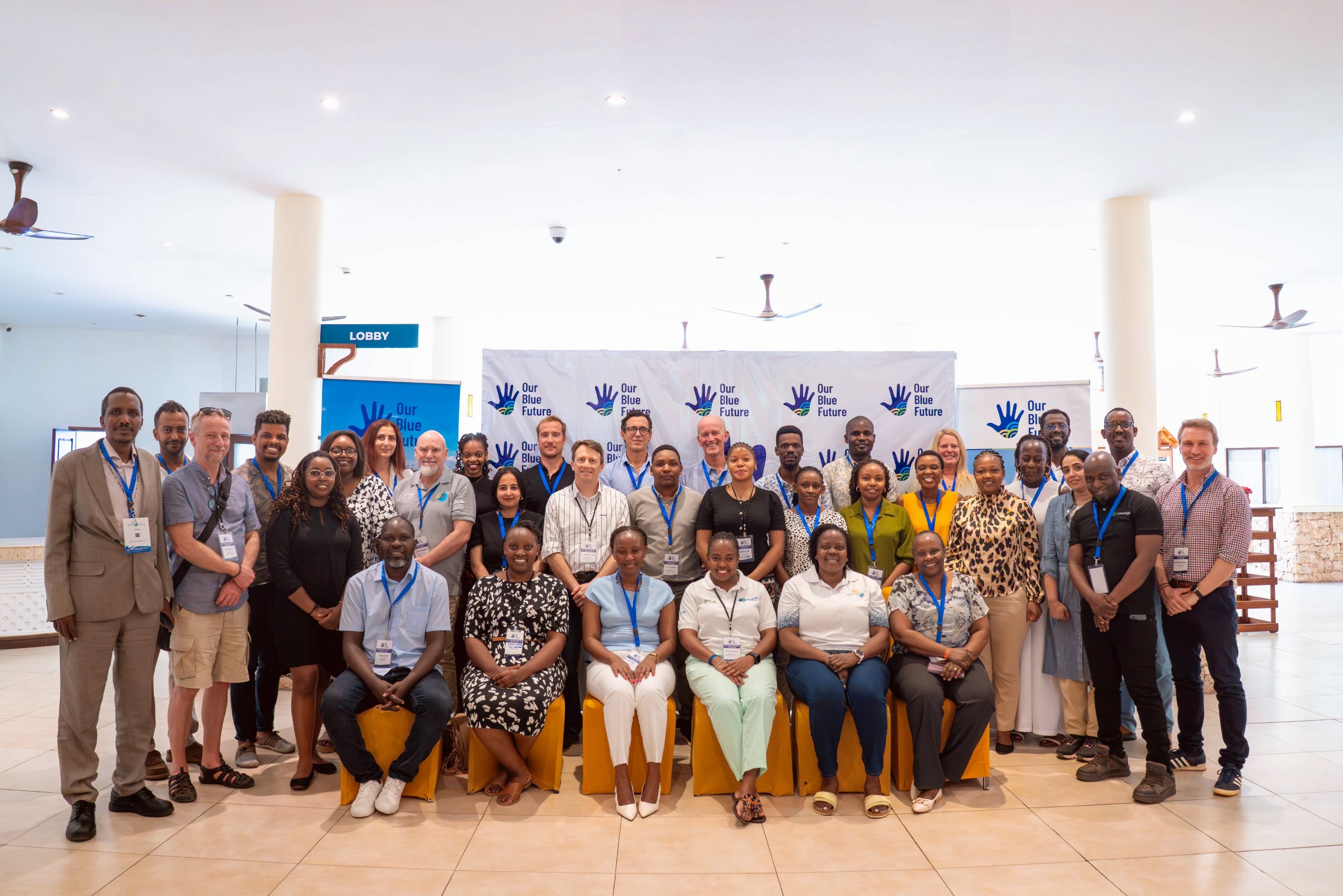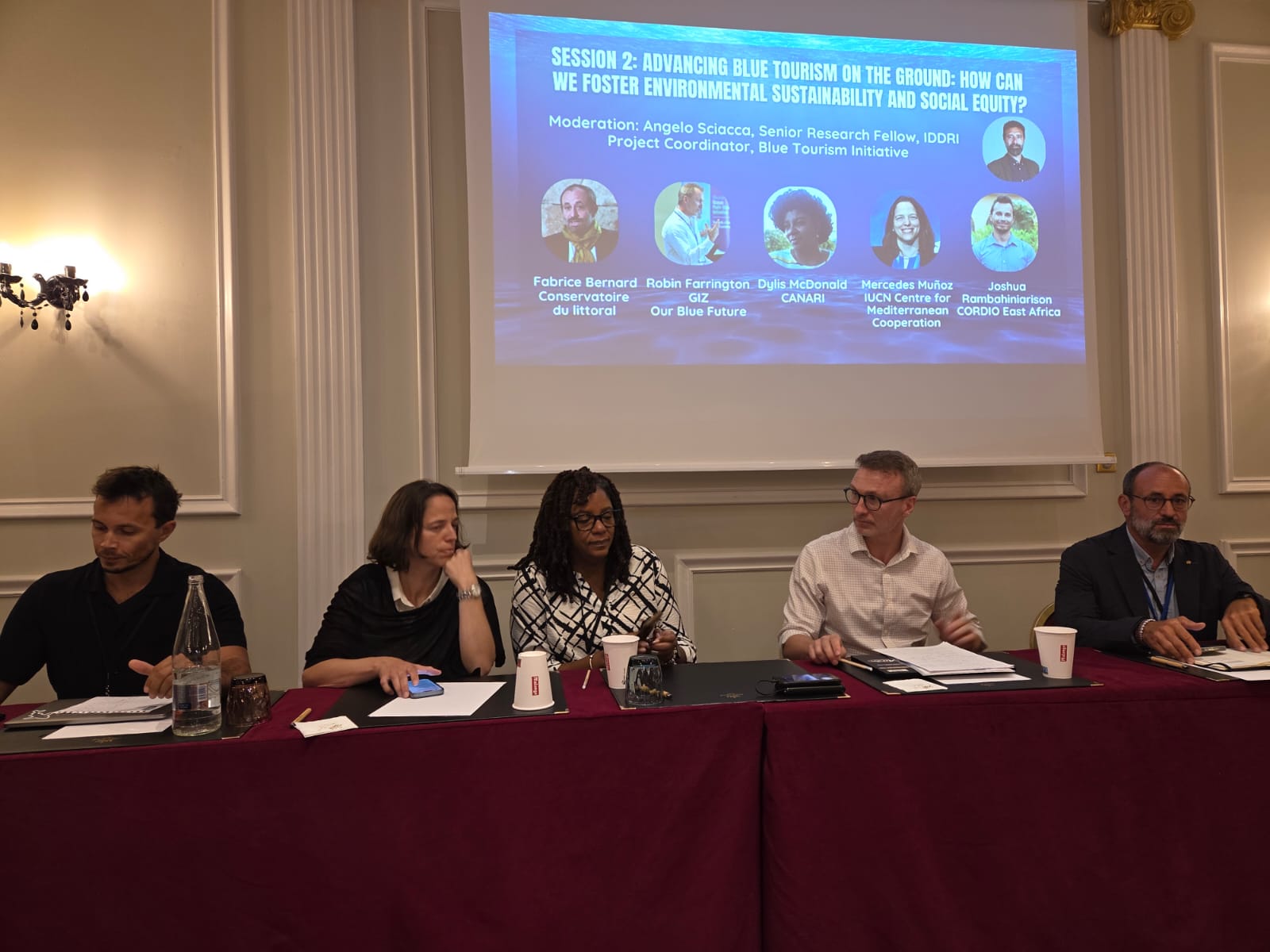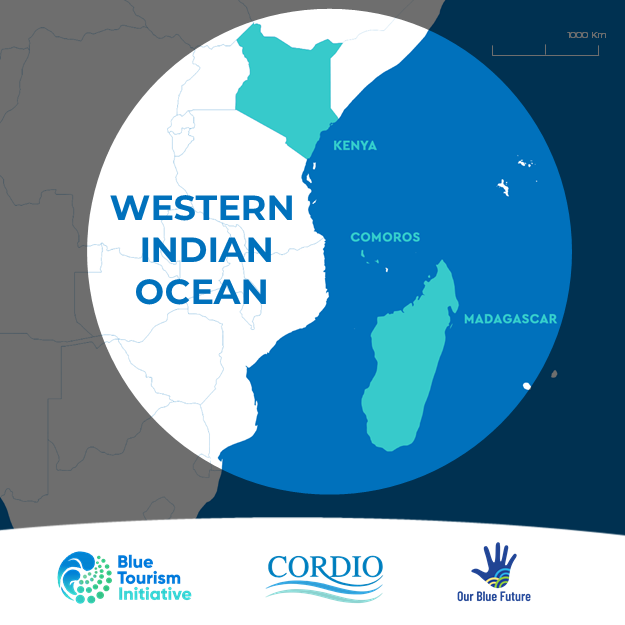By Timothy Allela, Paul Baraka, CORDIO East Africa
The Blue Tourism Innovation Team focuses on enhancing regional and multi stakeholder collaboration around sustainable blue tourism in the Western Indian Ocean (WIO) region to address issues such as climate change, marine pollution, and biodiversity loss while improving the socio-economic conditions of local populations. It does this through the Blue Tourism Initiative (BTI).
BTI was launched in July 2022 as a four-year, €4.3 million programme co-funded by the French Facility for Global Environment (FFEM) and supported by partners including OBF, the World Bank, UNEP, IDDRI, IUCN Mediterranean and CANARI. In the WIO, where CORDIO East Africa is leading implementation in collaboration with local partners, the Blue Tourism Initiative is piloting new models of sustainable, inclusive tourism across three sites: Diani-Shimoni in Kenya, Sainte Marie Island in Madagascar, and Mitsamioulli-Ndroudé National Park in Comoros. The initiative aims to enhance community participation in tourism development, strengthen governance at the intersection of conservation and tourism, and build local capacity for more resilient coastal economies.
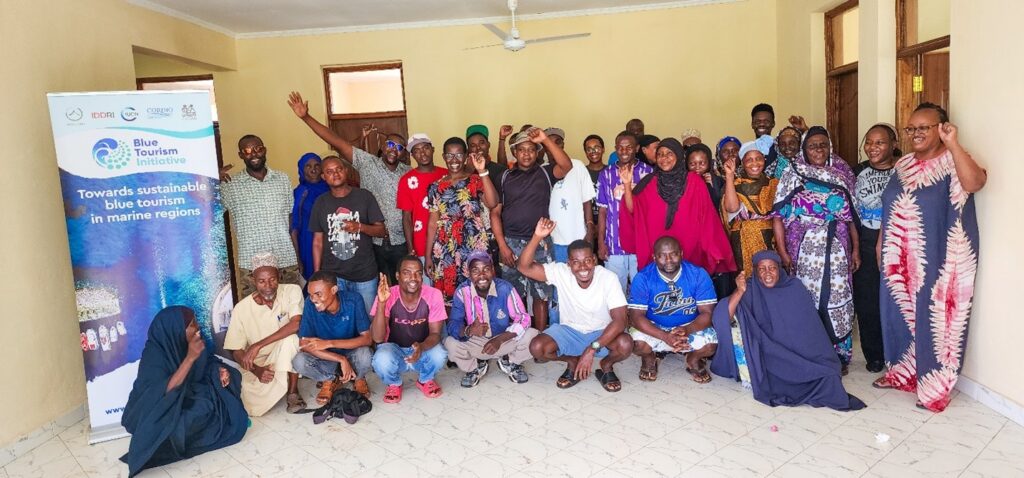
The BTI participants from Kinondo-Chale and several workshop facilitators
Implementation began in April 2025 in Diani-Shimoni, Kenya—a region where tourism, fishing, and agriculture sustain many livelihoods but where mounting environmental pressures threaten long-term sustainability. A training focused on enhancing blue tourism governance was conducted as a preliminary, with the 41 participants – 29 men and 12 women – introduced to tools and frameworks for inclusive planning, benefit-sharing, and collaborative natural resource management. This marked the beginning of a broader process to embed sustainable tourism principles and community leadership in the governance structure of the Kinondo-Chale locale. The Blue Tourism Initiative in Kenya will next move to the implementation of community-driven eco-tourism activities, investment in blue tourism infrastructure, and efforts to connect local tourism products to broader markets.
In Madagascar, the tourism sector on Sainte Marie Island is hampered by limited accessibility, poor waste management, and a highly seasonal visitor economy that strains services during peak periods and leaves communities vulnerable in low seasons. Informal tourism dominates the landscape, often lacking quality assurance and environmental safeguards. The Blue Tourism Initiative is working with the Tourism Office of Sainte Marie to develop sustainable island certification schemes for local operators, improve waste management, and promote public-private collaboration to enhance service standards and resilience.
Meanwhile in Comoros, blue tourism remains underdeveloped despite the country’s ecological richness. Challenges include weak infrastructure, low tourism capacity, and minimal integration between tourism and conservation. Within Mitsamioulli-Ndroudé National Park, the Blue Tourism Initiative is supporting efforts to align eco-tourism with marine conservation priorities while strengthening governance structures to ensure local communities benefit from and contribute to sustainable tourism development.
Together, these pilots are demonstrating how blue tourism can become a vehicle for ecological sustainability, economic inclusion and climate resilience. By putting communities at the center and aligning tourism with conservation goals, the Blue Tourism Initiative is helping to shape a more equitable and sustainable future for the Western Indian Ocean.
